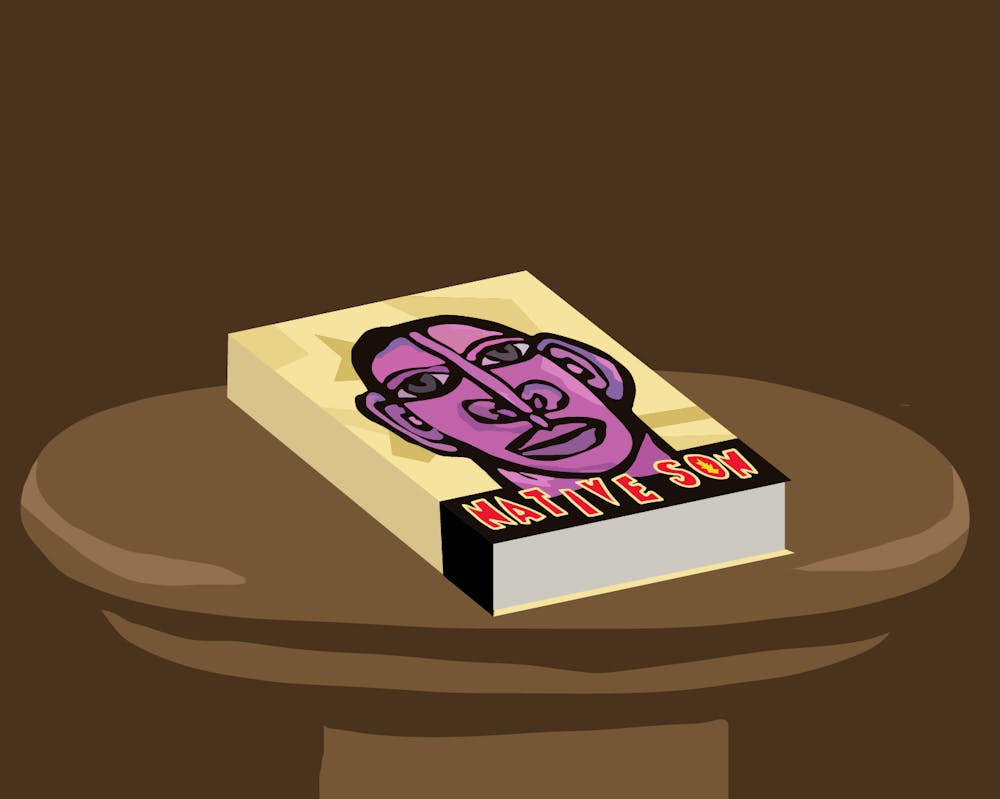The creation of Black History Month was chosen to celebrate the birth of Frederick Douglass, an abolitionist known for his treatise and memoir “Narrative of the Life of Frederick Douglass, an American Slave.” But it was Richard Wright who, I think, best articulated how systemic racism plays out in Black America in his bestselling novel “Native Son.”
The main character of the book, Bigger Thomas, is a native son of the segregated South Side of Chicago and grows up in a single room with a family of four. He squanders his days playing “white” with his friends, a game where they imitate the manners of “white folks” like army generals and J.P. Morgan. Bigger's first encounter with a white family, the Daltons, only intimidates him, as someone who doesn't know how hard to knock on white people’s doors, how far back to sit on a comfortable chair, or how to properly ask for a drink of water. Nor could he understand that the Communist Party, to which the Daltons’ daughter Mary belonged, encompassed committed anti-racists. Filled with fear and hate, Bigger suffocates Mary and covers it up as a communist ransom — a crime for which he was sentenced to death.
But here’s the twist of “Native Son”: Everyone is guilty.
Writing in 1940, Wright depicts Bigger Thomas as both a perpetrator and a victim of a larger problem: systemic racism. Take the Daltons: Mr. Dalton, a real estate magnate, donated over $5 million to educate Black Americans, but he also refused to desegregate housing in the South Side on the basis that “it’s an old custom,” enabling the terrible living conditions that shaped Bigger’s distorted worldview. Mary unintentionally evoked fear and unease in Bigger by asking him how “his people” live and eat, oblivious to the fact that her interrogation placed Bigger under the scrutinizing eyes of white ethnocentrism. Lest we vindictively think of Bigger as an ungrateful murderer, Wright reminds us that Bigger was the product of his environment, where he was conditioned into believing that the kindness of white people must be constantly guarded against.
Bigger would recognize the plight his fellow Black Americans face today. Despite moderate progress in poverty alleviation, Black families remain 70% more likely to live in substandard housing compared to the rest of the population. The percentage of predominantly Black and Hispanic schools rose from 9% to 16% from 2000 to 2014 as a result of both residential and school segregation. From Chicago to Philadelphia, police have disproportionately targeted and shot Black residents, despite express prohibitions against racial profiling — hence, the eruption of Black Lives Matter protests that we saw last year.
This social strife has prompted debates over whether systemic racism is truly culpable for America’s ills, garnering contrasting responses. While activists have denounced systemic racism in workplaces and government policies, some conservatives have dismissed the term as a canard. If Black Americans are seven times more likely than white people to commit murder, some asked, how can one claim that Black people are disproportionately killed by cops? Doesn’t overrepresentation in crimes justify more shootings?
Such arguments are misplaced, as they ignore the psychological effects of systemic racism that Wright so powerfully illustrates in “Native Son.” Many Black Americans are born into a web of institutions that condition their attitudes and behaviors. Bigger, for one, learned to accept his agony as not a single case of injustice, but rather a fact of life. He adjusted himself to this reality by creating his own laws of being and notions of right and wrong; in his moral template, the only way to survive was to hate and kill the people crushing him — even strangers and well-meaning patrons. Did Bigger’s crime warrant his execution? He certainly was not blameless. But comparing Bigger’s crime with that of an ordinary white person fails to account for the psychologically debilitating effects of systemic racism. It was a false equivalence 80 years ago — and still doesn’t make sense today.
What makes “Native Son” a classic is that the conditions that gave birth to Bigger's actions unfortunately remain recognizable today. Discriminatory local laws and business practices continue to trap many Black Americans in generational poverty, imposing on them a distorted model of life from which there is no escape. Denialists of systemic racism are unlikely to stop deflecting blame. That means much will depend on if we as a society can raise awareness of the fact that high crime rates in Black neighborhoods are a symptom of broader structural inequalities. Reading “Native Son” this Black History Month gives us a timely reminder that the discussion of systemic racism will, and must, continue.
SEE MORE FROM BRUCE SHEN:
BRUCE SHEN is a College first-year student from Shanghai, China studying German studies. His email is xshen01@sas.upenn.edu.
SEE MORE FROM BRUCE SHEN:









